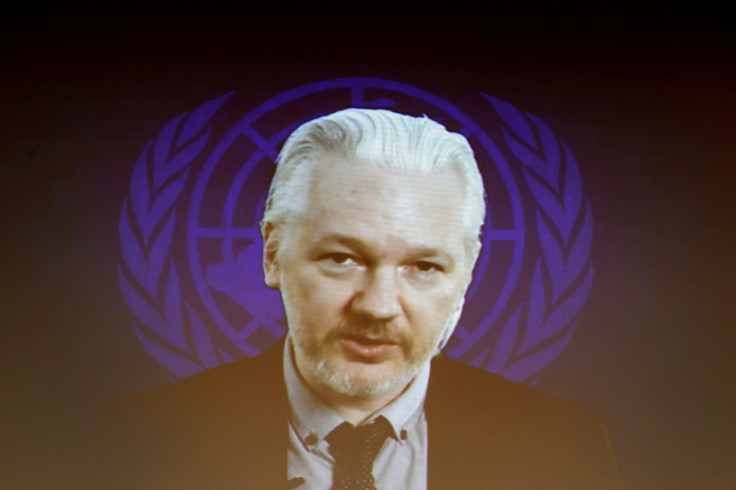WikiLeaks is 'drowning in material' relating to mass surveillance, says Julian Assange

WikiLeaks still has a lot more documents relating to mass surveillance by US secret services to release and more keep coming in, Julian Assange has said in a new interview.
Assange told German news magazine Der Spiegel that although the controversial whistle-blowing platform has been hit by criminal investigations, a banking blockade and hacking attacks on its infrastructure, it has survived.
"There had been attacks on our technical infrastructure. And our staff had to take a 40% pay cut, but we have been able to keep things together without having to fire anybody, which I am quite proud of. We became a bit like Cuba, working out ways around this blockade. Various groups like Germany's Wau Holland Foundation collected donations for us during the blockade," said Assange.
"We are drowning in material now. Economically, the challenge for WikiLeaks is whether we can scale up our income in proportion to the amount of material we have to process."
WikiLeaks is open to being sent whistle-blowing documents that show proof of mass surveillance, corruption or government cover-ups around the world, and Assange says that donations have enabled the platform to upgrade its submission system so that it is better able to protect its sources.
More than a dozen legal proceedings ongoing against WikiLeaks
However, WikiLeaks' political troubles are far from over. In addition to Assange being wanted for questioning in relation to sexual assault allegations in Sweden, he says that the US is pursuing charges of espionage, conspiracy to commit espionage, computer fraud and abuse, theft of secrets and general conspiracy against him.
Then there is Saudi Arabia, which declared that publishing government information carries a penalty of 20 years in jail after Saudi cables were published, and Australia is now pursuing a criminal investigation against WikiLeaks for publishing a suppression order in 2014 that was designed to prevent world leaders from being named in a corruption case.
On top of all that, the UK government claims Assange breached his bail conditions by applying for asylum in the Ecuadorian Embassy, and in total, there are "a dozen" different legal proceedings ongoing against the association and Assange.
People use WikiLeaks to gain information on other people
Altogether, there are now more than 10 million documents and accompanying analyses of the documents published on WikiLeaks. According to Assange, a majority of WikiLeaks readers come from India and the US, and its readers use the website to search for information on other people.
"We also have quite a number of readers who search for persons. The sister is getting married and someone wants to check the groom. Or someone is negotiating a business deal and wants to know something about his potential partner or a bureaucrat he has to talk to," he said.
Assange is keen to assist the German public in finding out more about the extent of US surveillance in Germany, where he claims public support for WikiLeaks is high.
"If they need a witness I would be happy if they would come here and ask me their questions," said Assange.
US wants to prevent Eurasia economic integration
"We have documents about US surveillance of top German politicians including the chancellor and the foreign minister. We can't reveal our sources but we can state the reasons we believe the documents are authentic and assist with interpretation."
However, besides uncovering mass surveillance, Assange says that WikiLeaks' present priority is in leaking important trade agreements between the US and other countries.
He stated: "These agreements are a package that the US is using to reposition itself in the world against China by constructing a new grand enclosure.
"We are seeing something that would result in a tighter economic and legal integration with the US, which draws Western Europe's centre of gravity away from Eurasia and towards the US, when the greatest chance for long-term peace in Eurasia is its economic integration."
© Copyright IBTimes 2025. All rights reserved.






















